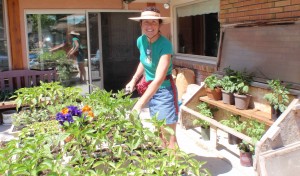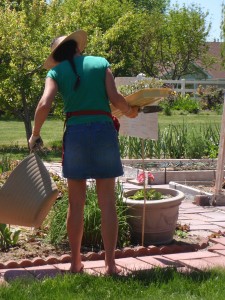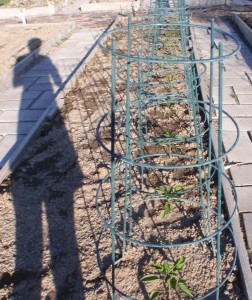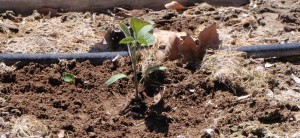
Sometimes, watching the weather report feels like a full time job. Especially in the spring, when I am trying to harden off my seedlings and decide when to plant them permanently out in the garden. But, on the other hand, I totally appreciate the benefits of modern weather forecasting. It may be that the long term forecast changes day to day, but it can show trends and help me make planting decisions even without absolute precision.


For instance, the average date of the last frost is around the middle of May in southwest Idaho, but no worry about frost is much more certain at the end of May. However, once we actually get to the beginning of May, there may be a long hot spell predicted that makes it more practical to release those plants from their pots. When the daytime temperatures are near 80°F for several days in a row, it is hard enough to keep the pots adequately watered, that it makes more sense to plant the seedlings out and watch carefully for late frost.
It is easier to cover or protect plants when they are young, then in the fall when they are so big. If there are trellises, cages, or stakes that I am going to use for the plants anyway, I get them in place as a potential for hanging blankets or towels. I have a supply of old blankets that I have collected along the way. I would expect that some could be gotten for cheap prices at thrift stores or garage sales. The cut plastic gallon jug or an upside down gallon pot (like what the pots come in from the nursery) makes a good cap for the smallest plants. They might need to be supplemented with blankets or towels if the night time temperatures are too low.
For any method, don’t forget to take the covers off before the sun warms things up too much. And don’t forget that even though they are more insulated from the sun when in the ground, they will still need a bit more regular watering the first couple of weeks out there. I have found that going ahead and planting out a little “early” can sometimes be the best decision and mean less work and plant stress in the long run. Your plants will thank you.

